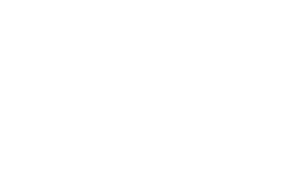Pakistan protest over PM comments
- Published

Leaked documents accuse Pakistani intelligence of helping Afghan militants
Pakistani intelligence officials have cancelled a visit to Britain in protest at comments made by David Cameron about the country's alleged links to terror.
The prime minister warned Pakistan not to have any relationship with groups that "promote the export of terror".
Senior intelligence agency officials had been due to come to London for talks on counter-terrorism co-operation with the UK security services.
Shadow foreign secretary David Miliband said the cancellation was "bad news".
A visit by the President, Asif Ali Zardari, is still expected to go ahead.
Mr Cameron made the comments to reporters after a speech in the southern Indian city of Bangalore on Wednesday.
He said: "We should be very, very clear with Pakistan that we want to see a strong, stable and democratic Pakistan.
"We cannot tolerate in any sense the idea that this country is allowed to look both ways and is able, in any way, to promote the export of terror, whether to India or whether to Afghanistan or anywhere else in the world."
'Anger'
His remarks followed the leaking of US documents on the WikiLeaks website in which Pakistan's Inter Services Intelligence agency was accused of secretly helping the Afghan insurgency.
Pakistani security sources confirmed the cancellation of the visit was as a direct result of Mr Cameron's comments.
They said his suggestion Pakistan was playing a "double game" in Afghanistan had caused a great deal of anger within Pakistan's security establishment, government and civil society.
Furious Pakistani foreign office statements have pointed to sacrifices made by the country.
David Miliband: "David Cameron still seems to be intent on making headlines"
The 91»»±¨'s Aleem Maqbool said there has been an insistence that it would not affect wider co-operation between the two countries in fighting militancy. Their partners in the region will want this row resolved as soon as possible.
Mr Cameron's spokeswoman insisted he was talking about Pakistan as a country, not its government.
She said that the main message was for Pakistan to shut "terror groups" down.
Downing Street and the Foreign Office would not comment on the decision by Pakistan's Inter-Services Intelligence, but officials said Mr Zardari's visit to the UK was expected to go ahead as planned.
"Our understanding is that the visit is on," said a Foreign Office spokeswoman.
Mr Miliband said: "Britain needs good relations with Pakistan, and Pakistan good relations with Britain. The cancellation of Pakistan's Intelligence Service counter terrorism conference is clearly bad news.
"The prime minister's comments this week told only part of the story and that has enraged people in Pakistan. It is vital he shows that he understands the need not just for Pakistan to tackle terrorism but that he will support them in doing so and understand the losses they have suffered.
"If you want to tell it how it is, you need to know how it is. The lesson for David Cameron is clear: opposition is about chasing headlines but government is about doing the right thing."
Sir Hilary Synott, former British High Commissioner to Pakistan, said the fact that the comments were made in India would annoy Pakistan.
But he said India and Britain had shared interests as both countries had been affected by the activities of groups such as Lashka-e-Toiba and Hakani network.
He told 91»»±¨ Radio 4's Today programme there came a stage when private remonstrations do not work.
"It's quite clear Pakistan hasn't been controlling these groups sufficiently, so there comes a time and it's for a politician to judge this time, when these matters have to be said more strongly."
Dr Farzana Sheikh, associate fellow at Chatham House think tank, said there was "deep disarray" inside the ranks of the Pakistani government, with the intelligence officials and military "clearly at odds" with the political leadership over how to react.
"It's clear the military and intelligence services want to show that they can act quite autonomously of the political leadership by announcing that Lt Gen Shuja Pasha will not be joining the president on his visit to the UK."
- Published29 July 2010
- Published28 July 2010